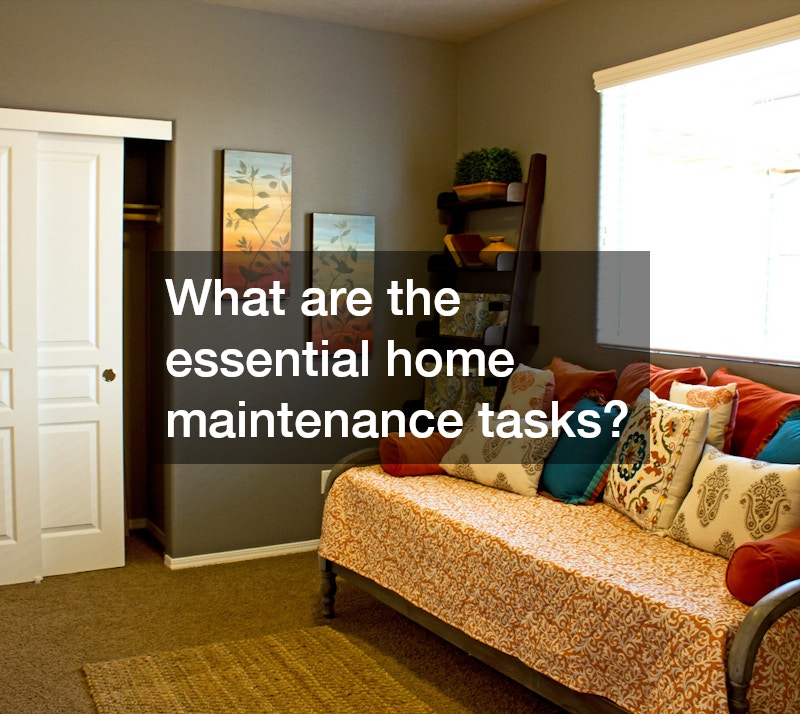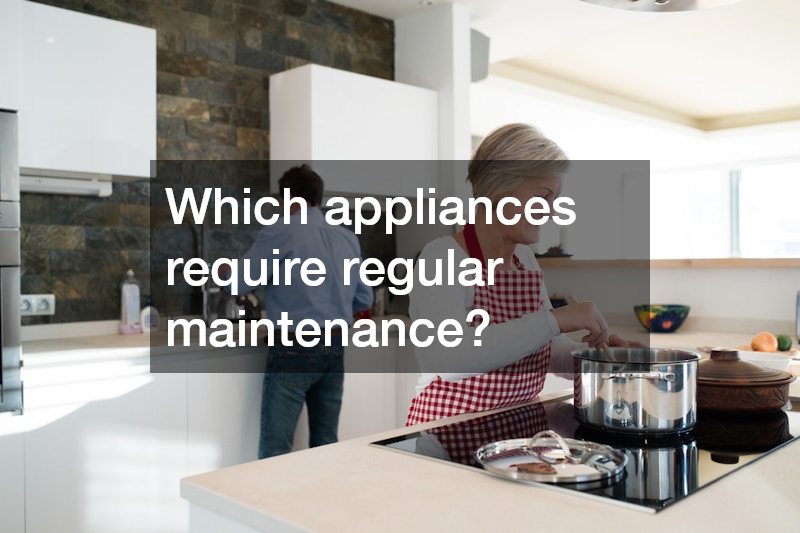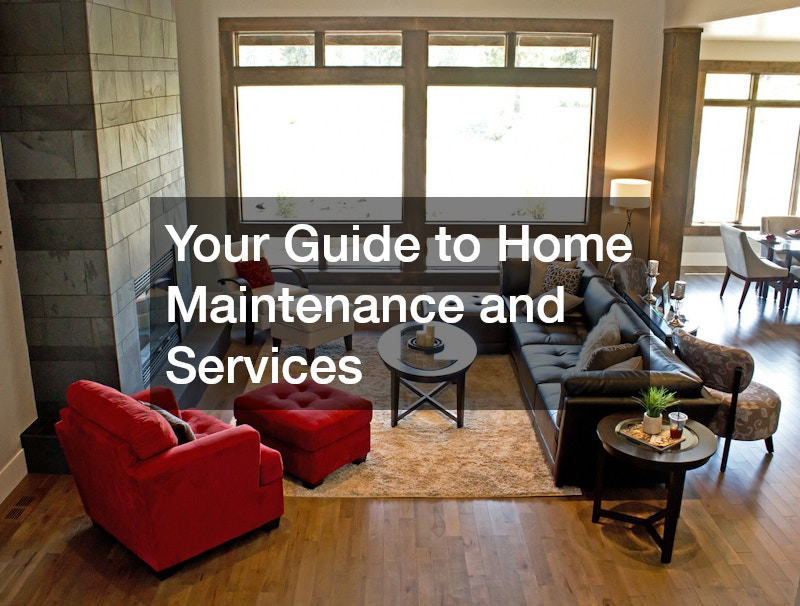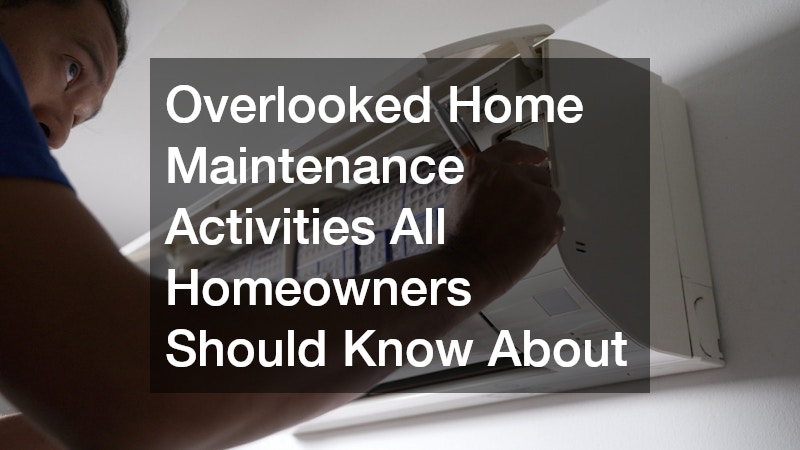Keeping a home in excellent condition takes more than a quick tidy or occasional fix. Regular maintenance protects your property’s value, keeps it safe and comfortable, and often saves you money over time. This guide offers a complete look at home maintenance and services, from hiring a reliable house painter to arranging home insulation services and more.
Your home is one of your biggest investments, and maintaining it properly ensures it remains a place of pride and security. Knowing which tasks to prioritise and when to call professionals — like plumbers, cleaning services, or an electrical contractor — can make the process easier and more affordable. Whether it’s booking an HVAC service, installing window shutters, or simply learning better upkeep habits, this guide will help you keep your home looking and functioning at its best year-round.
1. What are the essential home maintenance tasks?

A. Seasonal maintenance checklist
Each season brings unique challenges for your home. Summer is a good time to book an HVAC service, inspect your garage door, and prepare outdoor spaces. Autumn is ideal for cleaning gutters, checking your roof, and organising home insulation services before winter. In spring, arrange cleaning services to refresh interiors and tidy up outside areas after the colder months.
B. Monthly upkeep tips
Certain tasks are best handled monthly to prevent problems. Clean vents and change air filters, inspect your window shutters, and keep an eye out for minor stains or leaks needing stain removal. Regular attention to small details helps avoid bigger, costlier repairs later and keeps your home running smoothly.
C. Annual inspection guidelines
At least once a year, bring in professionals to inspect your roof, plumbing, electrical systems, and heating and cooling units. A qualified electrical contractor can ensure your wiring and circuits are safe, while a house painter can touch up exterior paint to protect against weather damage. Don’t forget to also test your garage door safety mechanisms and arrange a thorough HVAC service.
D. Critical safety checks
Safety should never be overlooked. Check smoke alarms, test locks and window latches, and make sure outdoor lighting works. Have plumbers inspect your water heater and pipes, and hire an electrical contractor to assess your breaker panel for potential hazards. Taking these steps reduces the risk of accidents and emergencies.
E. Preventative measures to avoid damage
Proactive maintenance pays off. Seal decks and driveways, repair minor roof issues, and keep up with insulation to protect against the elements. Booking cleaning services regularly and scheduling stain removal for carpets or walls helps maintain both the look and integrity of your home.
2. How can I save money on home maintenance?
A. DIY vs hiring professionals
Many homeowners wonder whether they should tackle jobs themselves or call a pro. Simple tasks like light stain removal or painting a small shed can often be done yourself. But more complex jobs — such as installing home insulation services or rewiring by an electrical contractor — are best left to licensed experts for safety and quality.
B. Finding cost-effective materials
Shop around for durable, efficient materials to get the most from your budget. Quality window shutters and proper insulation reduce energy bills over time. Likewise, investing in a reputable house painter can ensure a finish that lasts for years, rather than needing frequent touch-ups.
C. Using energy-efficient appliances
Switching to energy-efficient appliances lowers your running costs. Keep your heating and cooling systems working at their best by arranging regular HVAC service, and ensure your garage door seals properly to prevent heat loss. Over time, these small changes make a big difference to your power bills.
D. Scheduling regular maintenance to avoid costly repairs
Routine checks are cheaper than emergency repairs. Hiring plumbers, cleaning services, and other trades regularly means problems are caught early, saving you money and stress. Having an electrical contractor conduct a yearly inspection also helps prevent expensive electrical failures.
E. Exploring home renovation tax credits
In Australia, you may qualify for rebates or incentives for improving your home’s energy efficiency. Adding insulation or upgrading windows can reduce both bills and your environmental impact. Speak to a professional to find out how these credits apply to your situation.
3. What should I know before hiring a contractor?
A. Researching contractor credentials
Always ensure that the house painter, electrical contractor, or plumber you hire is licensed, insured, and experienced. Look for specialists who have worked on homes similar to yours and understand local building codes and conditions.
B. Understanding contractor agreements
Before any work starts, get a written contract that clearly outlines the scope, timeline, and cost. Whether you’re hiring for home insulation services, HVAC service, or stain removal, a good agreement protects both parties and minimises misunderstandings.
C. Evaluating contractor insurance and liability
It’s vital to confirm your contractor carries adequate insurance. This ensures you’re not liable if something goes wrong while they’re installing window shutters, repairing your garage door, or rewiring your home. Don’t be afraid to ask for proof of insurance.
D. Getting multiple quotes
Comparing at least three quotes helps you find the right balance of price and quality. This applies whether you’re hiring cleaning services, a house painter, or an electrical contractor. Taking the time to compare saves money and ensures better results.
E. Checking past client references and reviews
Ask to see examples of previous work and read reviews online. This is especially important for visible jobs like painting, installing window shutters, or stain removal, where the quality is easy to see. Positive feedback and photos of past projects help you choose with confidence.
4. Which appliances require regular maintenance?

A. Kitchen appliances
Your fridge, oven, and dishwasher benefit from regular cleaning and checks. Booking cleaning services for a deep kitchen clean also keeps your appliances and surfaces hygienic and efficient.
B. HVAC system
A professional HVAC service ensures your system runs efficiently and avoids sudden breakdowns. It’s best to schedule servicing before peak summer or winter to ensure comfort year-round.
C. Washer and dryer
Clean lint filters, check hoses, and service these appliances to prevent fire risks and keep them running properly. Regular maintenance also extends their lifespan.
D. Water heaters
Have a qualified plumber inspect your water heater annually. They can flush out sediment and check for leaks, helping you avoid cold showers and costly damage.
E. Home security systems
Test alarms, change batteries, and review your system’s settings regularly. A functioning security system keeps your family and property safe from intruders and emergencies.
5. How do I maintain my home’s exterior?
A. Roof inspection and repairs
An annual roof inspection helps you catch damage early, before leaks occur. Professional repairs maintain the roof’s integrity and protect your interiors.
B. Cleaning and sealing surfaces
Outdoor surfaces like decks, driveways, and patios benefit from sealing and regular stain removal. Professional cleaning services can refresh these areas, making them safer and more attractive.
C. Gutter maintenance
Clean gutters prevent water damage and deter pests. Schedule a thorough clean at least twice a year, especially after heavy leaf fall.
D. Lawn and garden care
Keep your garden tidy with regular mowing, trimming, and fertilising. Well-maintained outdoor spaces improve kerb appeal and can even increase property value.
E. Pest control strategies
Regular inspections and preventative treatments keep termites, ants, and rodents at bay. Sealing entry points and maintaining cleanliness helps minimise infestations.
6. What are the benefits of routine HVAC maintenance?
A. Energy efficiency improvements
Serviced systems work more efficiently, lowering energy use and costs. Regular HVAC service ensures your home stays comfortable without wasting power.
B. Air quality enhancement
Clean filters and components mean healthier indoor air. This is particularly beneficial if anyone in your household has allergies or asthma.
C. Prolonging equipment lifespan
Professional servicing reduces wear and tear, helping your system last longer and perform reliably.
D. Preventing major repairs
Routine maintenance catches small problems early, avoiding expensive emergency repairs when you least expect them.
E. Seasonal HVAC preparation
Book your HVAC service before seasonal extremes hit. This ensures your system can handle hot summers and chilly winters without faltering.
7. How can I improve my home’s energy efficiency?

A. Insulation and weatherproofing
Quality insulation, installed by professionals offering home insulation services, keeps your home comfortable and reduces energy bills. Proper sealing of gaps and cracks helps too.
B. Window and door upgrades
Installing energy-efficient windows and window shutters improves insulation and blocks heat in summer and cold in winter. This lowers your reliance on heating and cooling systems.
C. Smart home technology
Automated thermostats, lighting, and appliances save energy and add convenience to your daily life.
D. Solar energy options
If suitable for your property, solar panels can reduce electricity costs and lower your carbon footprint.
E. Energy-saving habits
Simple habits — turning off lights, unplugging devices — add up over time, helping you save on utilities without much effort.
8. What are common plumbing issues, and how can they be fixed?
A. Leaky faucets and pipes
Even small leaks waste water and increase bills. A licensed plumber can repair leaks quickly and efficiently.
B. Clogged drains and toilets
Resist using harsh chemicals; call experienced plumbers for safe, effective unclogging. Prevent blockages by being mindful of what goes down drains.
C. Water heater problems
Sediment build-up and faulty components can reduce performance. Have a plumber service your unit annually for reliable hot water.
D. Low water pressure solutions
A sudden drop in water pressure may indicate a blockage or leak. Plumbers can identify and resolve the cause, restoring normal flow.
E. Sewer line repair and maintenance
Roots and blockages can damage sewer lines. Regular inspections prevent serious issues and costly repairs.
9. How do I maintain my home’s electrical system?
A. Understanding circuit breaker maintenance
Check breakers periodically and replace any that are worn or faulty. An electrical contractor can assist with testing and repairs.
B. Safe electrical appliance usage
Avoid overloading outlets and replace damaged cords promptly. Simple precautions keep your home safe from electrical hazards.
C. Regular inspection for potential hazards
Annual inspections by a qualified electrical contractor help detect hidden issues before they escalate into dangerous problems.
D. Lighting maintenance and upgrades
Switching to LEDs saves energy, and professional rewiring ensures everything is installed safely and up to code.
E. Hiring qualified electricians for major work
Major electrical jobs should always be left to a licensed electrical contractor. This ensures compliance with Australian standards and keeps everyone safe.
10. What are effective pest prevention and control strategies?

A. Identifying common pests
Know which pests are most common in your area, such as termites, cockroaches, and rodents. Awareness helps you respond quickly. By learning to recognise signs of these pests early — like droppings, nests, or damage to wood — you can respond quickly and prevent the problem from escalating.
B. Natural pest deterrents
Natural deterrents are a good first line of defence against unwanted guests. Seal gaps in doors, windows, and walls to block entry points, and keep all food securely stored in airtight containers.
C. Professional pest control options
For more serious or recurring infestations, it’s best to engage professional pest control services. Experts have access to stronger treatments and equipment that are more effective and targeted than store-bought solutions.
D. Regular inspections to prevent infestations
Routine inspections play a key role in long-term pest prevention. Scheduling annual or bi-annual inspections by a professional allows early detection of any developing problems, which are easier and cheaper to fix than full-blown infestations.
E. Pest-proofing your home
Pest-proofing is an ongoing process that involves making your home as unwelcoming as possible to insects and animals. Beyond sealing obvious cracks and gaps, you should install mesh screens on vents, repair damaged roof tiles, and trim back trees or shrubs that touch your house. Keeping your garden tidy and free of debris eliminates places where pests can hide and breed.
Conclusion
Regular home maintenance protects your investment, improves comfort, and ensures safety for your family. From hiring a reliable house painter, plumbers, and electrical contractor, to booking HVAC service, cleaning services, and arranging home insulation services, the right professionals make all the difference.
By taking the time to address both big and small tasks — like stain removal, upgrading window shutters, or maintaining your garage door — you can prevent problems before they arise and enhance your home’s value. A well-maintained home not only feels better to live in but also stands up better to time, weather, and daily use. With the tips in this guide and the help of trusted experts, you can enjoy peace of mind knowing your home is cared for properly, season after season.


